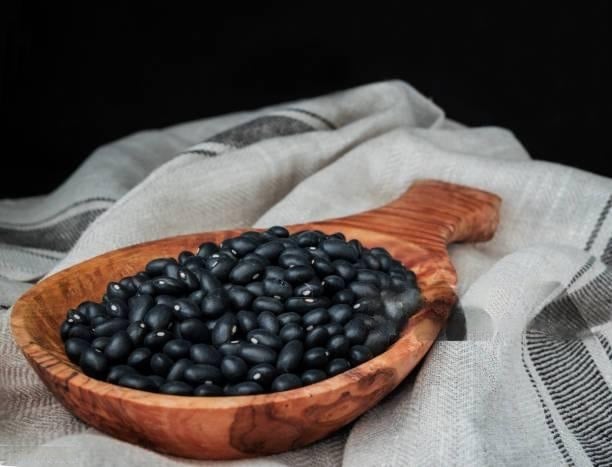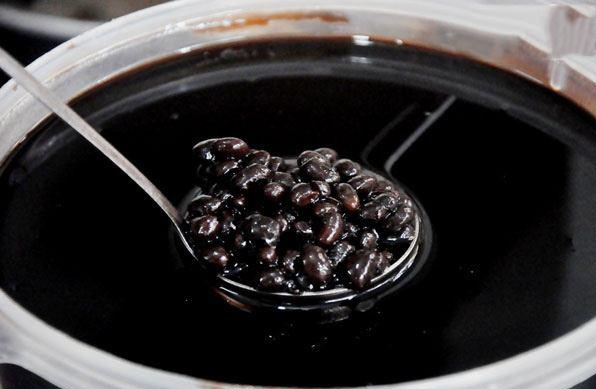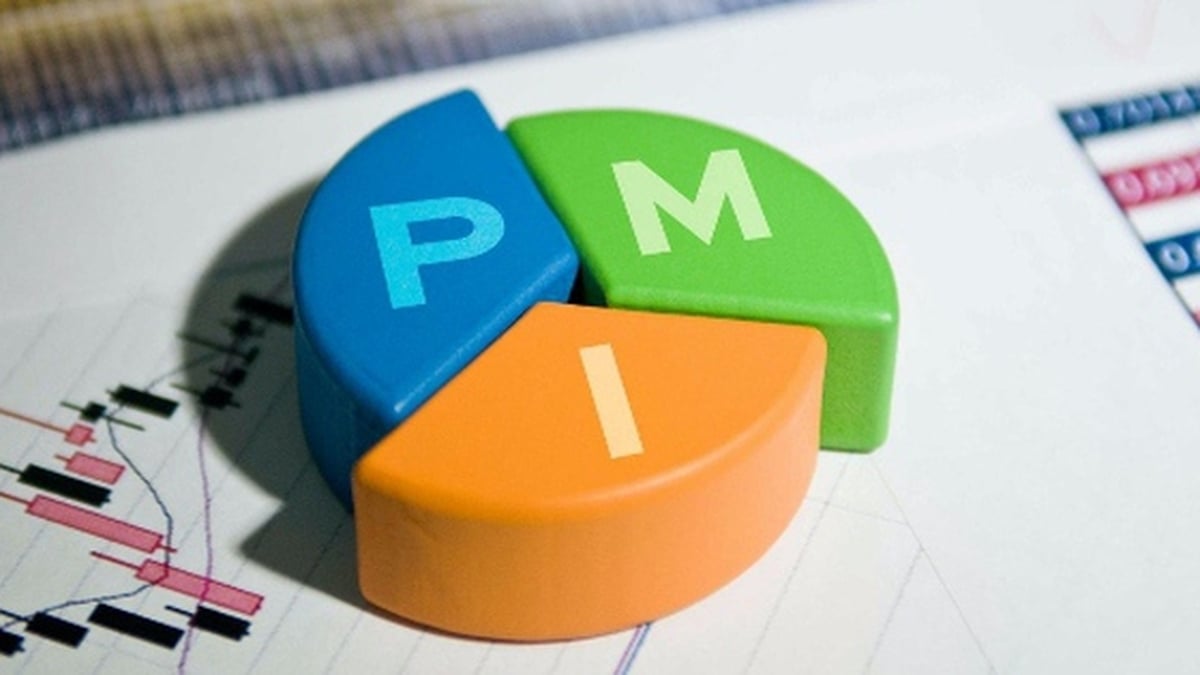Black beans have long been a familiar food to Vietnamese people. Black beans bring many health benefits. However, not everyone can eat them.

Consuming black beans properly brings many health benefits - Illustration photo/ Source: Getty
According to the Clinical Nutrition Center of K Hospital, black beans (some places call them black beans) are a familiar type of bean, containing a lot of protein. They can be processed into many dishes.
Black beans are high in carbohydrates in the form of starch and fiber, which are digested slowly and may provide health benefits.
Containing up to 4g of fiber per 100g (including soluble and insoluble fiber), black beans are very low in fat, and most of the fat is polyunsaturated fat. 1/2 cup of black beans has 90mg of omega-3 fatty acids and 108mg of omega-6 fatty acids.
Black beans are a great source of protein, with 7 grams per 1/2-cup serving. They're also high in folate, vitamin B1, manganese, and magnesium. The Dietary Guidelines for Americans, 2020-2025 recommends eating 3 cups (740 grams) of beans per week.
Consuming black beans has many health benefits. Black beans have been shown to reduce the risk of certain cancers due to the flavonoids found in their seed coats.
There are 8 different flavonoids that have been found in the seed coat, and 3 of them are anthocyanins. Flavonoids are essentially colour-giving plant nutritional pigments that function as antioxidants in the body to fight disease and free radicals.
Black beans have a low glycemic index, making them suitable for diabetics. Some studies have shown that diabetics have better postprandial blood sugar control when eating black beans with rice, and may even improve insulin sensitivity.
In addition, thanks to the high fiber content, a diet containing beans will also help maintain weight and support weight loss. It is also beneficial for heart health.
Studies on mice have shown that black beans help regulate the bacterial flora in the gut, helping to improve the intestinal epithelial barrier function. Phytogens in black beans also have antioxidant effects, which are good for the body. Black beans and other beans are a major source of protein in the vegetarian diet.

Black beans are a food with many nutritional values - Illustration photo
Black beans are a nutritious food and should be used in the menu with other beans.
The Clinical Nutrition Center of K Hospital recommends: because it contains a lot of fiber and slow-digesting starch, people with bloating and flatulence should limit their intake.
In addition, patients with gout or high uric acid in the blood should not eat too many beans in general and black beans in particular because they contain a lot of purines.
How to eat black beans to get the most nutrition?
According to health experts, to take advantage of nutrition, you should use whole black beans and cook black beans at home, which will be more delicious than using canned beans.
You should choose beans of moderate size, shiny black shell, no insects or mold. When you hold it in your hand, it should feel firm, and when you squeeze hard, the beans will still be the same. When you smell it, you will smell the characteristic aroma of black beans.
Before cooking black beans, you should soak them to remove damaged or flat beans. When cooked, the beans will soften faster and taste better.
To cook black beans quickly and retain nutrients, cook over low heat by bringing to a boil, then reduce heat and cover the pot to soften the beans. During the cooking time, it is important to check frequently to add more water when there are signs of water running low to ensure the beans do not burn.
Source: https://tuoitre.vn/dau-den-nhieu-loi-ich-nhung-ai-nen-han-che-an-2024110622145245.htm























![[Photo] Gia Lai provincial leaders offer flowers at Uncle Ho's Monument with the ethnic groups of the Central Highlands](https://vphoto.vietnam.vn/thumb/1200x675/vietnam/resource/IMAGE/2025/7/9/196438801da24b3cb6158d0501984818)










































































Comment (0)